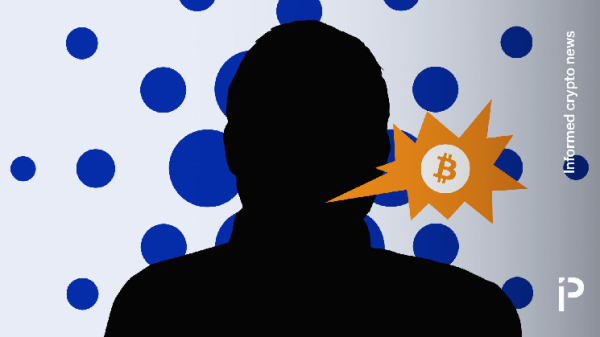Debunking Charles Hoskinson’s claims about bitcoin scarcity

In a controversial video, ex-Ethereum CEO Charles Hoskinson asserts that bitcoin is merely a digital asset whose claim to absolute scarcity can also be made by altcoins. Of course, he would have us believe that his current project, Cardano, is as credibly scarce as bitcoin but this argument is fallacious.
Repeating a tired, years-old argument that bitcoin can’t be scarce because there are altcoins, Hoskinson argues that its ‘digital gold’ quality is unremarkable.
First, the historical record defeats the argument
For over a decade — except for a few minutes during an XRP bubble — bitcoin has reigned as the world’s largest cryptocurrency.
Over the years, competitors have created millions of altcoins, and almost all of them have claimed a capped or deflationary supply.
Yet, despite all of these competitors, for reasons that Hoskinson fails to understand, the world consistently values bitcoin’s scarcity considerably higher than that of any altcoin.
Indeed, rather than losing its claim of credible digital scarcity to any of these millions of competitors, bitcoin has only become more valuable. Its market capitalization has increased 4,600% over the past decade. At the same time, it has persistently ranked #1 on CoinMarketCap’s leaderboard for as long as CoinMarketCap has existed.
Bitcoiners respond to Mike Green’s ‘scarcity destroys value’ critique
People, not code, enforce Bitcoin’s scarcity
The reason for bitcoin’s undefeated reign as the world’s most valuable cryptocurrency and its unquestioned claim of a hard-capped 21 million supply is not code, mathematics, computation, or cryptography.
For his part, Hoskinson comically tried explaining how Cardano’s novel code and consensus mechanism creates a scarce supply. What he failed to mention, of course, is that Cardano’s code and consensus mechanisms only matter if humans choose to operate them.
Across the globe, millions of human miners, node operators, developers, and enthusiasts agree to operate bitcoin’s network. These people — not any code — enforce bitcoin’s scarcity.
Otherwise — as has happened more times than anyone can count — people abandon, fork, or rename the coin.
Millions of hard-capped ICOs and IDOs are now abandoned to $0 or near-$0. Indeed, today, even Ethereum violates its original code. Ethereum once had the code of Ethereum Classic (ETC), a time capsule of Ethereum long relegated to an obscure, non-ETH ticker.
After The DAO incident that precipitated the ETH-ETC fork, wealthy insiders simply ported Ethereum’s name and ETH ticker symbol to an entirely new coin which forked The DAO’s ETH out of circulation.
In other words, Ethereum is simply the name of a network that people choose to operate and whose code continues to change. It’s hard-forked dozens of times and no one knows if its supply will equal 100 million by 2027 or 2061.
The same is true for millions of altcoins. No one has assurance that their insiders won’t fork code, change names, or port tickers.
Bitcoin’s credible, digital scarcity
The world understands the reality of credible, digital scarcity. It’s not something that can be created simply by Hoskinson’s code and novel consensus mechanisms. People are smarter than that.
Despite altcoins’ claims of scarcity, including Hoskinson’s fawning description of Cardano’s likeness to digital gold, only bitcoin has decentralized its operation sufficiently to prevent an oligopoly from altering its capped supply. Only bitcoin has outgrown the control of a handful of developers or wealthy insiders, like Hoskinson, who always threaten name- and ticker-porting and new rules.
Again, the code is only as good as the humans who prevent jumps to new code.
In the altcoin sector, rules change quickly. In contrast, bitcoin is almost impossible to change.
As opposed to switching costs in the thousands or millions of dollars for most altcoins, any attacker who might try to port bitcoin’s name or ticker onto code with supply exceeding 21 million coins would need to spend billions of dollars to even attempt a 51% takeover. Even if they tried, bitcoin full nodes have defended its code in the past and stand ready to invalidate malicious blocks at any time.
The code might be perfect, but imperfect people operate it
No code forces bitcoin to limit its supply. The millions of people operating the network limit its supply to 21 million coins.
Hard-coded supply or deflationary issuance schedules are distractions. Indeed, altcoins regularly abandon their code and operate new code while many have simply abandoned code altogether.
In contrast, there is no oligopoly controlling the thousands of Bitcoin nodes around the world. No group owns anywhere close to a majority of bitcoin mining hardware worth tens of billions of dollars. Indeed, the role of modern bitcoin developers is mostly ministerial and janitorial — they create code for bitcoin but have minimal power to convince nodes to accept it. Changes to bitcoin’s code occur so infrequently that even minor upgrades take years to deploy.
In all, bitcoin holds the unique position of being the first credibly scarce digital currency. Earlier efforts failed because of poor design, tech, or running afoul of financial regulations.
Bitcoin Core developer proposes new type of pruned node
Even E-gold, which once boasted over a million users, fell because its founder neglected to register with FinCEN which regulates money transmitters. It also was not reporting suspicious transactions or verifying user identities. The project ceased to exist.
By figuring out how to decentralize a financial system across the globe and disintermediate anyone from a controlling position within bitcoin, Satoshi Nakamoto invented digital gold. Millions of altcoins have tried and failed to overtake its claim of credible scarcity for years.
Regardless of what Charles Hoskinson claims about Cardano or any other crypto, history repeatedly reinforces the world’s belief in bitcoin’s unique scarcity.